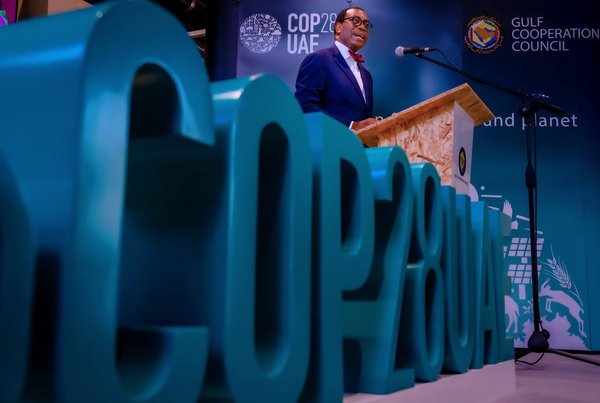 Read this article in French
Read this article in French- Share this article
- Subscribe to our newsletter
Unlocking the potential of Africa’s agriculture sector
Leaders from Africa and the Middle East launched a USD 10 billion public-private-partnership initiative to transform food systems for millions of people facing climate-induced food insecurity during the UN Climate Change Conference COP28 in Dubai, United Arabic Emirates (UAE), in December 2023.
The climate crisis is already having real impacts on communities in Africa and the Middle East, with impacts including severe weather events, droughts and floods, air pollution and agricultural disruptions.
The SAFE Initiative of the Global Green Growth Institute (GGGI) will mobilise at least ten billion US dollars to implement proven climate-smart agricultural practices such as regenerative agriculture, integrated soil fertility management and solar-powered irrigation. SAFE aims to mobilise strategic investments from public and private investors to address food security issues, improve livelihoods and create green jobs.
Ahead of the launch, Ban Ki-moon, president of the GGGI and former UN Secretary-General, said: “By placing food security at the heart of COP28 discussions, we can foster sustainable development and resilience in Africa. This requires collaboration among nations, organisations and stakeholders to enact comprehensive strategies that tackle these intertwined issues holistically. The Africa and Middle East SAFE Initiative between Africa and the Middle East is an example of collaboration to address the challenges of food security, climate change and rural livelihood vulnerability.”
Dr Akinwumi Adesina, President of the African Development Bank, welcomed the initiative. “Africa, which holds 65 per cent of the uncultivated arable land left in the world, holds the key for the future of food in the world. That is why all efforts must be made to support the continent to fully unlock the potential of its agriculture sector,” he said. “Africa can be a food solutions provider for the Middle East, where water stress poses immense challenges for food production, and where the cost of water desalinisation is prohibitive for competitive food production to assure food security.”
The African Development Bank, the Islamic Development Bank and the International Fund for Agricultural Development are co-investing USD 1.6 billion for the development of Special Agro-Industrial Processing Zones (SAPZs) in Africa. Dr Adesina invited investment by Middle Eastern countries in the development of SAPZs in Africa to support the success of the SAFE initiative.
(AfDB/ile)
Read more on the AfDB website




